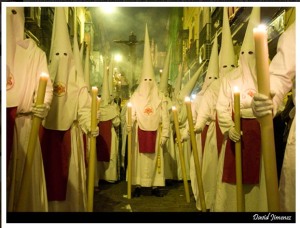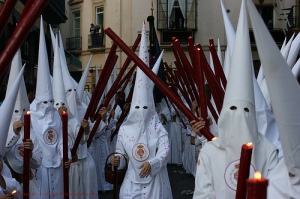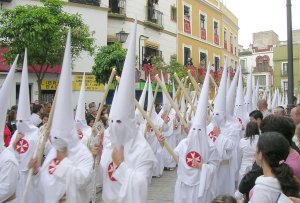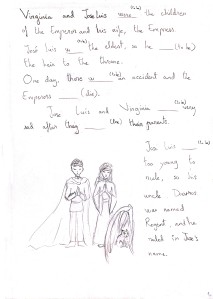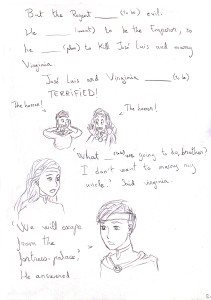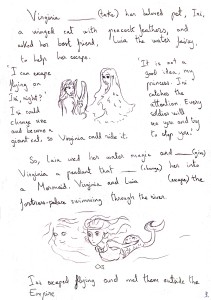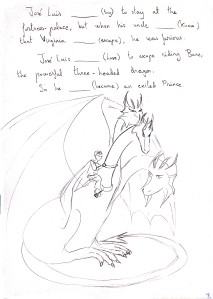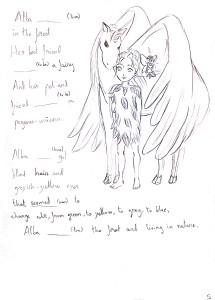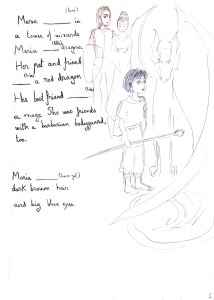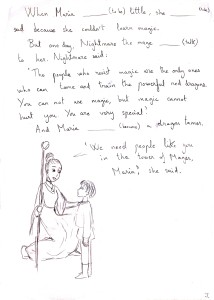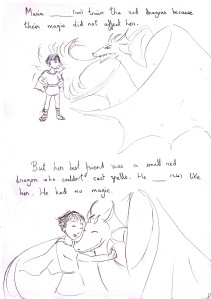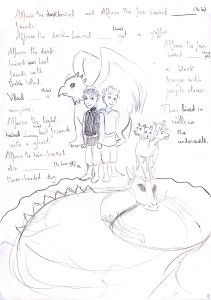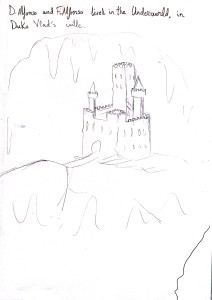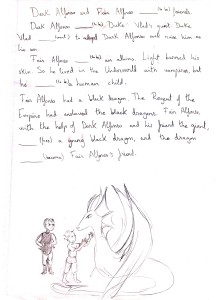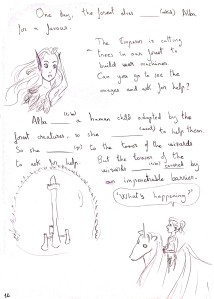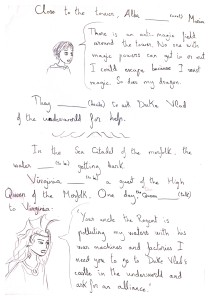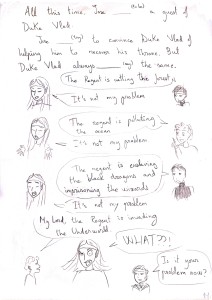The worst class is always the “Three levels class”. I can handle two levels of English. I can handle a very naughty kid if the others have the same level. Last year I had this little kid who was horribly misbehaved, but since he was the only one in his class, it was quite easy to enlist the other as “teachers” to help him. His classmates felt proud of being “authority”, and he was piqued into working harder so he could catch up with them. I turned a class trouble into wonderful reviewing practice. I was pretty proud of that one.
But the horror is always the class with children of three different ages and three different levels of knowledge of the subject. If I follow the book, some get lost and others distracted. When I am trying to help the one who is one or two years younger, the others start chatting, standing up or moving through the room. When I try to advance a bit faster so the older ones don’t get bored and pay attention, the youngest gets lost.
It happened last year. This year, it’s happening again. You must have guessed at this point that this is the class which drove me to extreme lengths to get them motivated.
This year, the youngest one is a girl with crazy mood swings. I am quite the logical person, and I was taught to think logically from a young age. That is a problem because I am used to being surrounded with highly logical people. When this girl gets angry or sad or frustrated, there is nothing you can do with her: she will refuse to open her book, will refuse to participate, will voice her constant anger… If I try to reason with her, normally to no avail, her brother tells me: ‘Don’t bother, she’s like that’.
Unluckily, it is a rare class that does not see V suffering a severe disappointment about something, and therefore getting all moody, sulky, non-collaborative, defiant and proud of it all. As if the world owed her to stop just because she feels bad.
Her brother’s constant reminder whenever I try to reason with her, which apparently means “leave her alone, there’s nothing you can do about it and actually at home we have given up on that” makes me feel slightly less responsible, but not much. These are little kids: I know I must give them back with a higher knowledge of English than they had at the beginning of the year, but I guess their education as human beings is just as important.
Today I just had to tell her:
‘V, I just cannot go on interrupting the class whenever you feel sad or angry or annoyed. Nowadays people tolerate it from you because you are a child, but in the future you cannot do that. You cannot skip classes or exams because you feel bad. If you behave that way in a job, you will lose it, and a job is what allows you to eat.’ I didn’t know how to go on… this is an eight year old in a class with slightly older children. ‘Look, if you are mad and you just do this’ (I frown, look grumpy and cross my arms over my chest to illustrate the act of reinforcing the anger) ‘you just get madder and feel worse. I know it’s difficult, but maybe next time you are angry or sad you can try to … take a deep breath and do something. And at least not get even angrier. It’s hard, but you can try. Because in the end it’s going to be better for you. It doesn’t make you happy to stay two hours angry.’ And then I moved on, because it was too much for such a young girl… although at least she was listening to me intently, and looking and me with piercing eyes during the whole speech. But I had to go back to English (that speech had to be done in Spanish) and it was enough of an interruption.
When her brother said: ‘Teacher, you are not just an English teacher… You are… ‘ He didn’t find the words, but I felt stupidly grateful for the fact that he had noticed my efforts and acknowledged them. I tried to tone down the seriousness of the situation exclaiming: ‘Yay! I’m a philosopher! A philosopher is me!’
And then we went back to the map of Duke Vlad’s castle. Yes, I am letting them explore the castle, and I am drawing the place as they open doors and telling them what they find. So I can ask them where they are going to and what they do, and they can answer in English.
The poor things have found one hundred gold coins and and the castle armory, but haven’t ransacked the armory for all it’s worth.
Ah… the innocence of the first games…




